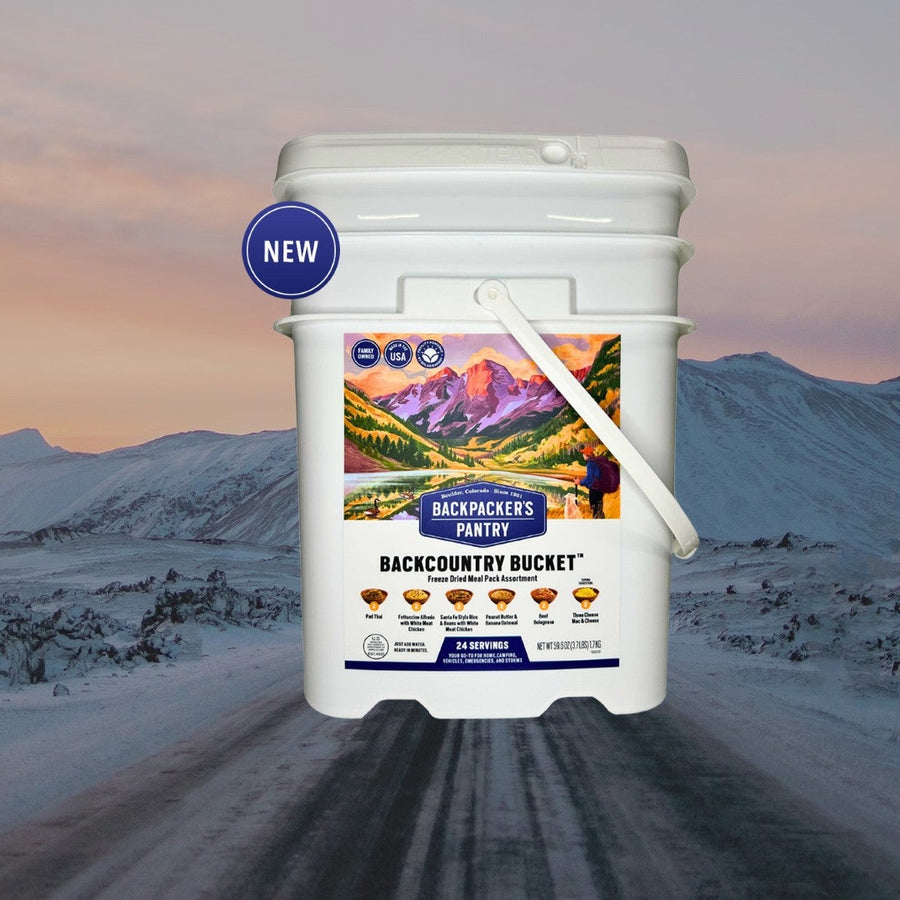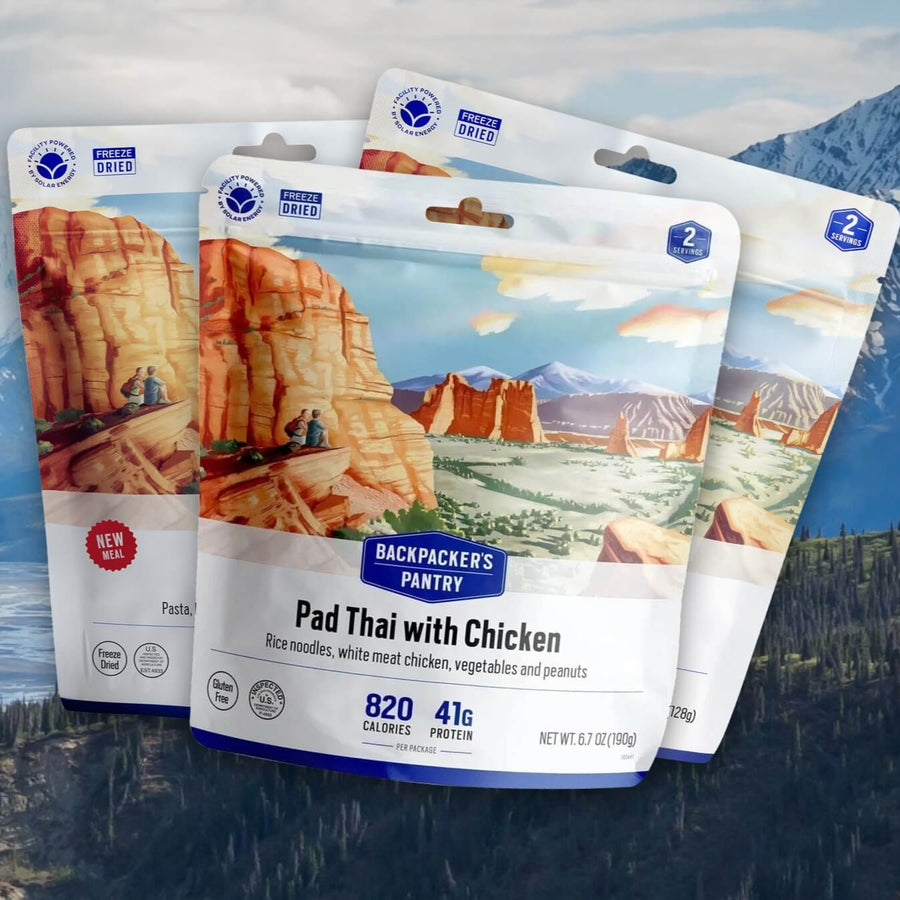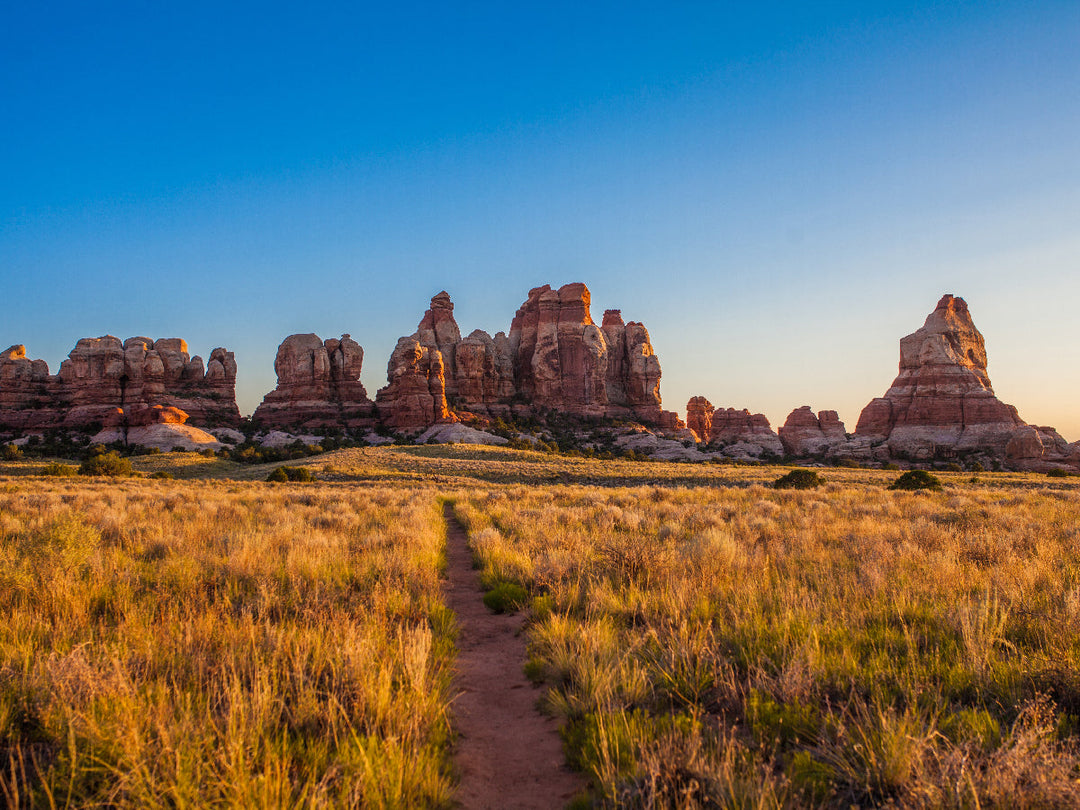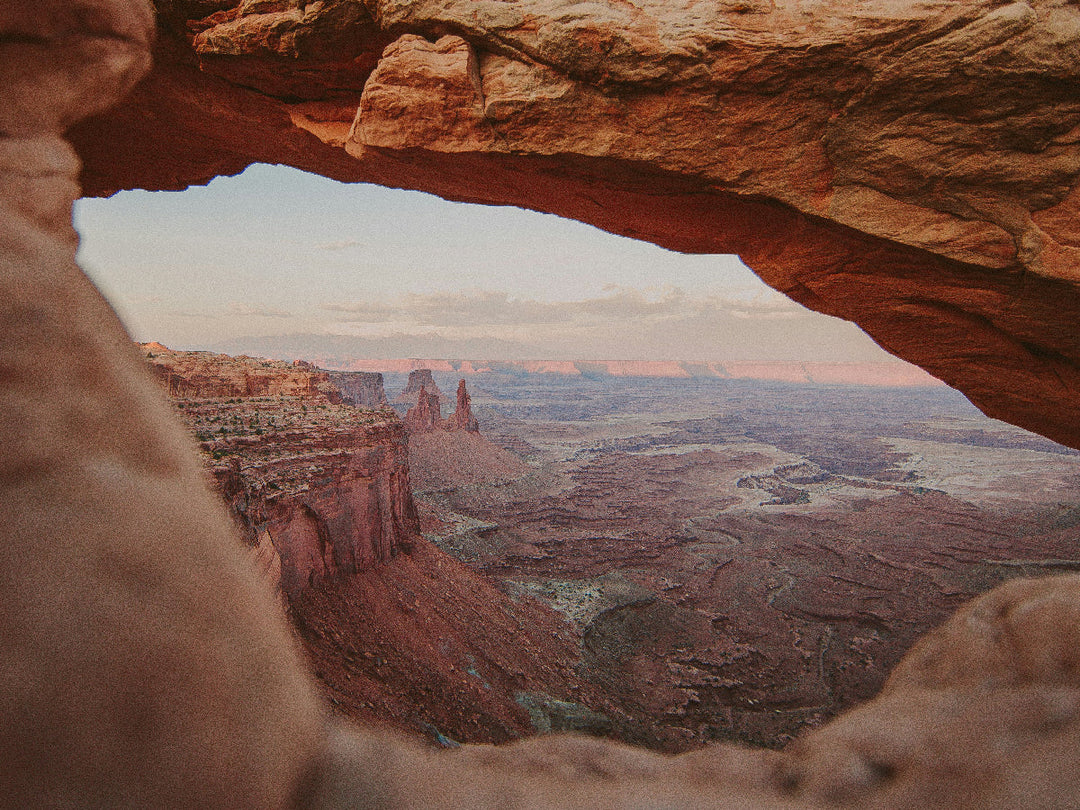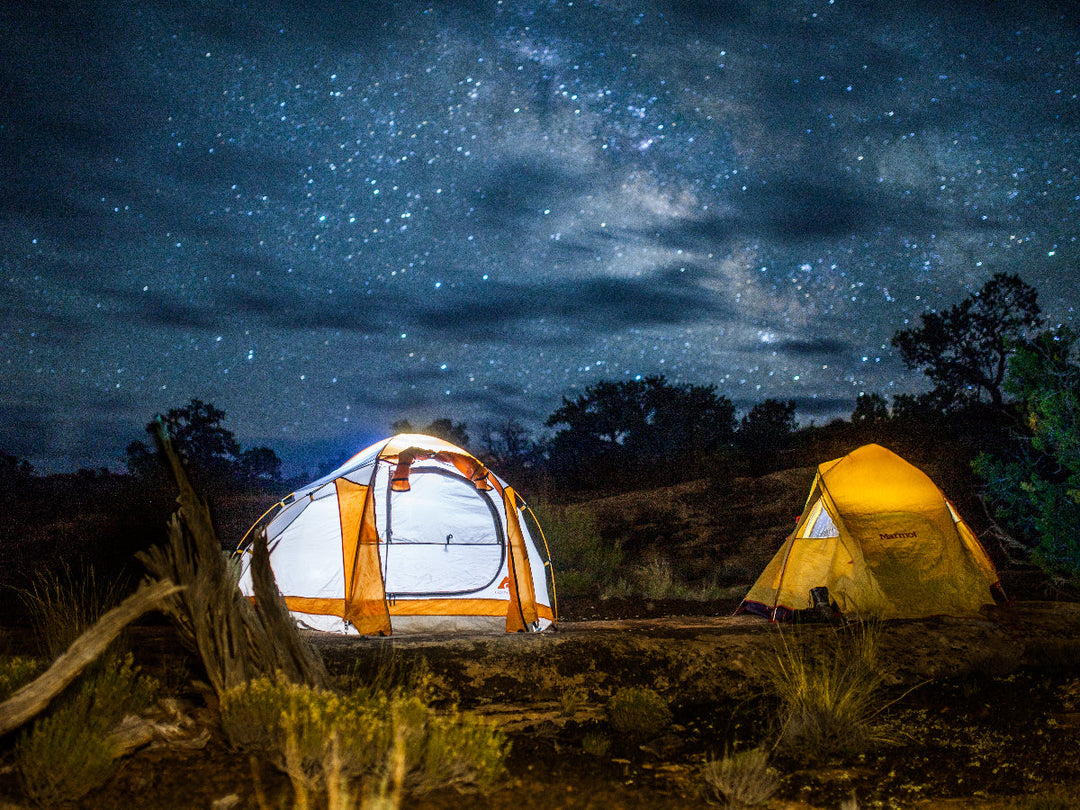Adam Cove on the Race to Alaska and speed sailing

This summer, Backpacker's Pantry supported Adam Cove of Team Wildcat in the Race to Alaska, a 750-mile human-powered sailing race from Washington to Alaska. We spoke to Adam about the race, its challenges and successes, how he got into sailing, and what you need to know before embarking on a similar expedition.
For those who don't know, what is the Race to Alaska?
The Race to Alaska, also known as R2AK, starts in Port Townsend, Washington and finishes in Ketchikan, Alaska - that's 750 miles of Canadian wilderness, with all the grizzly bears, 15 knot currents, and crazy weather that rugged coast has to offer. Two waypoints, Seymour Narrows and Bella Bella, dictate that the first half of the course needs to be through the islands and twists of the inside passage, and then the course opens up to offshore and protected options and no shortage of surprises. There is a short stop in Victoria, BC 40 miles in - that defines a qualifying leg and a chance to clear customs... and a chance to hang a little longer with all of the other racers.
As far as rules, there aren't many. Vessels from stand up paddle boards to 40' multihulls have entered and completed the race. There are two big rules: no motors and no support. That means not even an old outboard motor stowed in the murky bilges of the boat or a disabled inboard. This is also where the fun comes in. Most racers opt to use some sort of sail power as their primary means of propulsion, and racers get to be creative with also adding any sort of human power (oars and pedal-drives are most prevalent). As far as support, we're allowed to receive unplanned assistance from the community once we're underway, but nothing can be planned out such as food drops or organized weather routing.
We're on our own out there. The risks are as high as we each dare to make them. Although there is a strong vetting process to enter, we all encountered dangerous conditions. Some bad enough to force racers to quit. Fewer people have made it across the finish line than have been to space. It's a mental and physical challenge and the hardest race I've completed, especially by stepping it up as a single-handed (solo) competitor. The coastal navigation, extreme currents, cold waters, and shifting weather makes it far more challenging than something offshore of a similar mileage.
What inspired you to take on this challenge?
That's a deep question. Some things are tough to put into words, but I'll give it a shot. I believe it's a combination of a love for exploring, the need to test my mind and body and through that grow my capabilities, and a slight addiction to adrenaline. I think the real issue is that I get bored easily, and as I find new limits, there's a need to take on something new and harder. R2AK presents one of the hardest sailing courses out there, and it was completely unfamiliar sailing grounds to me. Then there is the opportunity to turn it up a notch by going at it alone, and another by taking a small boat (only 18': a Marshall Sanderling).
The problem then becomes, what's next? There always has to be something in the works. And I'm still sorting through that, but there will certainly be another R2AK in my future - what a blast!
How and when did you get into sailing? Racing?
I was somewhere around 7 years old the first time I went sailing. It was a Beetle Cat and a family friend took me for a spin around the bay. Next I remember, I was in a town program on Cape Cod, where I later landed what I still describe as my favorite job: teaching sailing. I raced in high school and college, and on plenty of different boats during the summers. And I still do. Sometimes offshore to Bermuda, and other times just off the coast. My wife and I have a cruising boat that I have sailed around New England with friends and family, as well as offshore to the Caribbean and back single-handed. I suppose it's all a bit of a blur, with some great memories mixed in and so many good friends made along the way. Sailing is some of the best fun you can have while not going all that fast, relatively... not all that different from when I'm spending time in the mountains, except maybe on the skiing front.

What was the biggest obstacle you faced and how did you overcome it?
As a shorthanded sailor, there is always the equation of trading miles for sleep. Your body craves the rest just as much as calories. I would aim to sleep when the wind was light and the current was against me. But what happens when you've only been able to manage some consecutive 20 minute naps while underway for a couple days, you have a strong breeze at your back, plenty of rocky coast around to sink you, and there's less than 100 miles to the finish?
These are the tough choices that are only exacerbated by sleep deprivation. I think that was it: the mental game. Knowing how hard I could push my body, without knowing exactly what the conditions would be next or what might exist as an escape plan. I also thrive on that. In those situations, I turn to my experience and make the best judgement call I can make - every choice in life involves compromise, and you just have to be willing to live with the consequences. I pulled over and slept for a few REM cycles. 100 miles is still a long way to go, it was dark, and it turned out that the wedges that secure the mast from movement had come loose and I hadn't noticed in that set of conditions. It all worked out, and I even got a hot Backpacker's Pantry meal out of stopping.
Yes, I saw six to seven foot breaking waves at one point in the race, and that was quite the physical challenge to keep the boat on her feet and get her to safer water, but I'd say it was harder to give up on sailing more miles in that case, too. I had to ensure that I could push even harder the next day. Just finishing this race is a challenge, and also doing it quickly can ride on a very fine line.
How about your biggest win or success?
The camaraderie with the other racers, hands down. The racers and race organizers were incredible people. We're still all in touch and pitching crazy ideas.
I broke a couple course records, including the fastest single-handed monohull sailor to ever finish the race, but that's not the memory that will stick. And someone will break that - I hope someone breaks that. It's great that we can all keep pushing each other to achieve amazing feats.
Can you talk a bit about the logistics of preparing for such a race and how to ensure you have the right supplies when you need them?
So much of this race is about logistics. Easily the most underappreciated topic. I love that you brought it up! For example, once I hit the finish line, I was in Alaska, with my boat, almost four thousand miles away from home. The race offers no official support in figuring out how to unwind your adventure. You have a few dozen of your awesome new friends around, but planning to handle this situation required months of advanced planning. Ketchikan is on an island too... just to add another level of complication. Glad to fill any potential racers in on how I had a trailer waiting for me, someone willing to drive it, and a two-day ferry ticket in my pocket to my truck waiting for me in Bellingham.
More important than anything else was planning to make sure I could take care of my body during the race. R2AK requires a lot of energy - around 4,000-5,000 calories a day, and there are very few places to reprovision along the way. This is a key area where Backpacker's Pantry came in. Their meals were quick to prepare, tasted great, and gave me lots of energy. The temperatures would drop significantly in the evening too, so warm meals provided not only some needed warmth, but the perfect morale boost.
Boat preparation was a large part of the race too. As was selecting the right clothing, route planning, and training. It really is a massive list, but manageable when you break it down into small components. I started with estimating a timeline, walking though each day, studying the conditions, and then adding a factor of safety. This all went through a few iterations, but allowed me to develop initial project and gear lists. I drew on experience from previous adventures and races. It's tough to predict everything, but running through scenarios really allowed me to prepare with physical items, as well as mentally.

How did you train for the race, mentally and physically?
I guess I could say that I've been training for decades, even though I was accepted into the race with six months to go. R2AK isn't something to jump into as a first adventure or sailing race. Other challenges funneled me in this direction. So the mental training and short-handed techniques were in the works for some time. I don't believe it is something that can be done over a short period of time. There's too much of a learning curve and not enough time to make mistakes and learn from them. Start small and build up from there.
Extended time alone is tough and preparation, as far as I have figured, is limited. It takes a level of mental toughness, and the excitement of the race offers a good distraction - I was with friends and family right up until I drove across the country with my boat: Wildcat. I also enjoyed my time with other racers from pre-start to after the finish, even if it was just chatting on the radio.
The physical side is the simple part. Not easy, but there is more of a recipe for it: more knowledge out there and individuals trained to help in this area. I focused on eating well and exercise that reflected my expectations. I spent a lot of time on my WaterRower and lifting weights, accompanied with plenty of stretching. I was also outside throughout the entire New England winter season, rowing whaleboats. I'd jump on my road bike when conditions permitted or hit some hiking trails. While I wasn't expecting to have had to row for 8 hours straight the first day of the race, or a combined 14 hours between the first two, I was glad I had trained hard leading into it, including carefully managing injuries along the way.
Do you have any advice for others hoping to get into sailing races?
Once you jump in, it's tough to ever look back. The community and the race course action is just fun (type 1 and type 2 - everyone can get their fix on both). And there are so many different approaches (I also promise that it is not all about wearing blue blazers and watching the sunset from fancy yacht clubs). There are distance races like R2AK, but then there are also coastal races around a few buoys that are a matter of hours. And sailing doesn't have to be about racing - the adventure side is there with cruising too. It's a way to explore new and remote parts of the world, all while being in tune with nature.
For anyone looking to get into racing, I'd suggest starting small. Jump into a community sailing program, ask a friend that sails, or hop on board a boat for weeknight racing (ask around the docks or there are often postings of boats looking for crew). Make sure to find a group you like and keep at it. While you can eventually get a boat of your own, a lot of sailors just crew on other peoples boats and don't have any expenses.
What's really interesting is that there is a very high level of crossover between hikers and sailors. So if you're coming from an outdoors background, you are already going to have plenty of common ground with the sailing community.
Anything else you want to add?
If you're thinking about R2AK, please feel free to reach out to me or any of the other racers. We're all glad to share tips, help get you to the start line, and encourage you along the way. Also, for any adventure, Race to Alaska or otherwise, don't short yourself on the nutrition front. Get something quality like Backpacker's Pantry - it's light, tasty, and will deliver when you need it most. It's easy to underestimate the conditions and the time it will take. I finished in under 11 days and thought it would take 14, but that easily could have changed - I've been on the flip side of that. Be prepared: it removes so much stress and allows you to focus on the higher-level aspects of your challenge.
A big thanks to Backpacker's Pantry! You made getting to Ketchikan possible!
To learn more about the race and Team Wildcat, check out their website!
